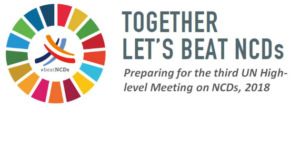News
Denmark to host big WHO conference
This article is more than 7 years old.
Elsewhere, the Danish PM is preparing for a European mini-tour

NCDs on the agenda in Copenhagen this week (photo: WHO)
With around 40 million people dying annually from noncommunicable diseases (NCDs) like diabetes, cancer and cardiovascular disease, the UN has earmarked the issue as one of its priorities.
To this end, the World Health Organisation (WHO) will hold a conference on NCDs in Copenhagen this week in a bid to boost investment and reduce early deaths brought on by NCDs.
“Business as usual will not work any longer regarding the NCDs. The global burden and challenge of NCDs is of such a scale and magnitude that it requires thinking outside the box and new partnerships and financing mechanisms,” said the development minister, Ulla Tørnæs.
“Partnerships hold the key to a healthier future and to the realization of the Sustainable Development Goals. We need to encourage innovative and bold partnerships between member states and non-state actors. We are looking forward to exploring and showcasing solutions through multi-sectoral and multi-stakeholder engagement and Denmark is happy to be leading this important discussion on how to close the financing gap.”
The conference, running from today to Wednesday, will attract delegates, development agencies, NGOs, philanthropists and business organisations to the Danish capital.
One of the primary aims of the conference is to establish innovative partnerships between public and private players, while focusing on the mobilisation of internal and external finance.
READ MORE: Denmark could become first HIV-free country in the world
Lars Løkke’s Euro trip
In other news, the Danish PM Lars Løkke Rasmussen will travel to Berlin, Madrid and Lisbon this week in a bid to further cement partnerships with Germany, Spain and Portugal in the wake of the impending Brexit.
Rasmussen will meet with the heads of state of all three nations: Angela Merkel, Mariano Rajoy and António Costa.
“Denmark will lose an important alliance partner when the UK leaves its chair empty in the EU, so we must acclimatise and reach out to develop the co-operation we have with the other EU countries we share an interest with,” said Rasmussen.
“For instance, Portugal and Spain are both strong advocates for free trade and open markets, and that is an agenda we must promote in the EU and globally – particularly during this time.”










































